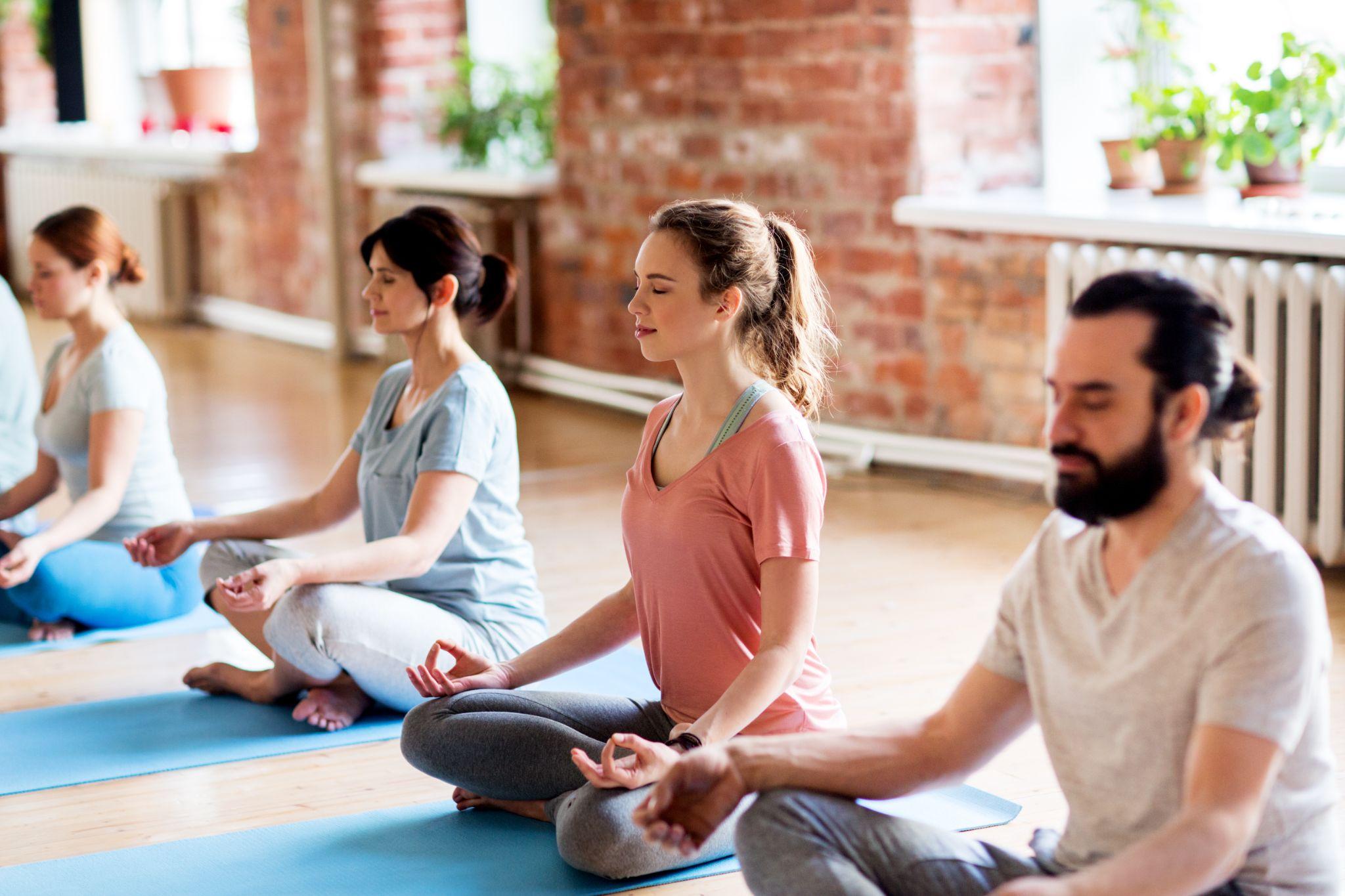
The journey of overcoming addiction is a multifaceted process that often requires more than just conventional therapies. In this exploration, we turn our focus to the ancient practice of yoga and its significant impact on recovery.
Let’s delve into how yoga, a discipline that fosters harmony between body, mind, and spirit, serves as a powerful tool in helping those who struggle with addiction move through the path of recovery. Offering more than just physical benefits, yoga emerges as a pathway to holistic healing, essential for those seeking to regain balance in their lives.
What Is Yoga?
Yoga, with its origins steeped in ancient history, is more than just a series of physical postures; it is a holistic discipline that encompasses physical, mental, and spiritual practices. At its core, yoga aims to promote harmony between these aspects of human existence.
The practice of yoga involves many elements, which include Asanas (physical postures), Pranayama (breathing techniques), and Dhyana (meditation). These elements work together to enhance an individual’s overall well-being, making it an ideal practice for those in recovery from addiction.
How Yoga Benefits Those in Addiction Recovery
Yoga can make an excellent addition to your addiction recovery journey.
Addressing the Physical Impacts of Addiction
Addiction often leaves a profound impact on the body. Yoga serves as a powerful tool in the detoxification process, aiding in the restoration of physical health. The physical postures of yoga help in alleviating the stress on the body caused by substance abuse, enhancing flexibility, and building strength. This physical rejuvenation is crucial for individuals recovering from addiction, as it lays a foundation for healthier lifestyle choices.
Managing Stress and Emotions
One of the most significant challenges in addiction recovery is managing stress, anxiety, and the range of emotions that surface during this period. Yoga offers a sanctuary for calming the mind and balancing emotions. The practice of controlled breathing and meditation techniques in yoga helps in reducing stress levels, providing mental clarity, and fostering emotional stability. This mental and emotional balance is vital for individuals in recovery, as it equips them with the tools to handle the ups and downs of the healing process.
Building Discipline and Focus
Addiction recovery demands a high level of self-discipline and focus, which can be cultivated through regular yoga practice. The discipline of maintaining a yoga routine and the focus required to perform various postures aid in developing these essential skills. This newfound discipline and focus extend beyond the yoga mat, influencing other areas of an individual’s life, thereby supporting their recovery journey.
Implementing Yoga into Addiction Recovery
Adopting yoga into addiction recovery programs can be a transformative experience for individuals. For beginners, gentle forms of yoga such as Hatha or Restorative yoga are ideal, as they focus on slow movements and stress-relief.
Incorporating yoga into one’s daily routine can start with simple, short sessions, gradually building up as one gets more comfortable. Yoga classes are a great way to learn yoga among peers under the watchful eye of an instructor.
Yoga as a Complementary Therapy

Yoga stands out as a complementary therapy in the multifaceted realm of addiction recovery, offering a synergistic effect when combined with traditional treatment modalities. Its integration with established therapies such as cognitive-behavioral therapy, group counseling, and even medication-assisted treatment can enhance overall recovery outcomes.
This holistic approach recognizes that the journey to recovery isn’t solely about addressing the physical aspects of addiction but also involves nurturing mental and emotional well-being.
Healthcare professionals increasingly acknowledge the value of yoga in creating a balanced treatment plan, as it aids in managing stress, improving mental clarity, and fostering emotional resilience.
Yoga’s unique ability to bridge the mind-body connection makes it a powerful adjunct therapy, providing individuals with additional tools to cope with the challenges of addiction recovery.
By incorporating yoga into a comprehensive treatment regimen, individuals can experience a more rounded and effective recovery process, paving the way for long-term wellness and stability.
Begin
The journey of addiction recovery is enriched by the incorporation of holistic practices like yoga, which offer profound benefits for both the body and mind. At Adelante Recovery Center, we understand that each individual’s path to recovery is unique. That’s why our inpatient and long-term addiction treatment programs are designed to provide personalized care, incorporating a range of therapeutic tools and techniques to support your journey.
We believe in empowering you with the best resources and guidance to not only overcome addiction but also to thrive in life after rehab.
If you’re seeking a compassionate, comprehensive approach to addiction recovery, we invite you to reach out to us. Let us guide you toward a balanced and fulfilling life, where the skills and practices learned in recovery become cornerstones of your daily routine. Contact Adelante Recovery Center today.

